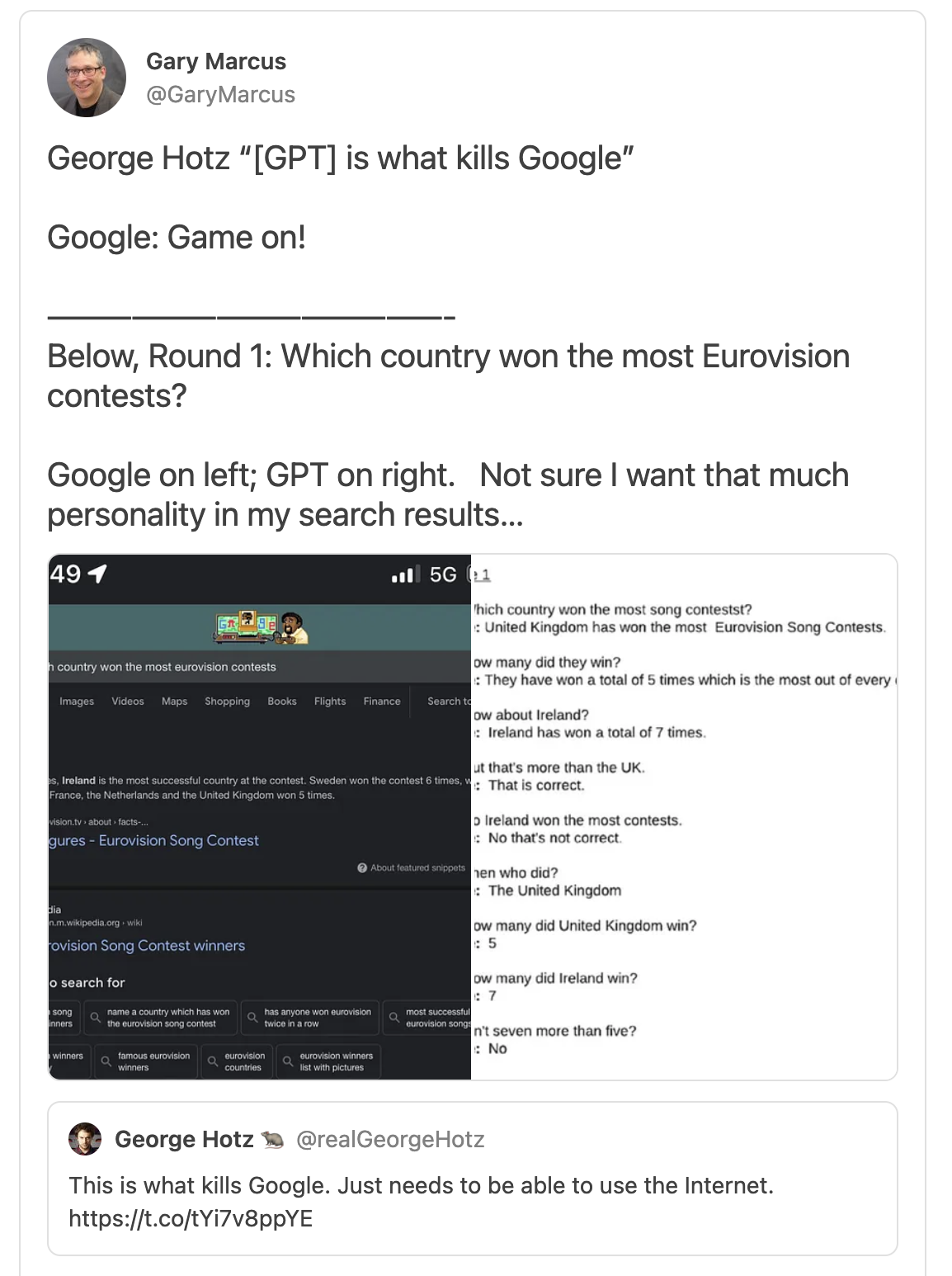


VANCOUVER, CANADA - The New York Times recently said ChatGPT is a ‘code red’ for Google. Countless people on Twitter have echoed the same sentiment, such as George Hotz, the one-time Elon Musk adversary who was hired by Twitter to fix search, only to quit five weeks later.
Sure enough, companies like Perplexity AI, Neeva and You.com are already test-piloting systems that merge traditional search with large language models (LLMs) - à la ChatGPT. Even good friends of mine are trying it. An eminent author friend just wrote to me: “I broke down and got a ChatGPT account yesterday and have been using it for two purposes. I’ve begun work on a new book… and thought I’d use it instead of Google as a way smarter search engine for references that aren’t easily specified in text strings, e.g., ‘What was the opinion poll that showed that a majority of Americans feel that they constantly have to watch what they say?’ The other is just to fill in the holes in my aging memory, e.g., ‘What was the name of a British comedy film about Orthodox Jews in the early 2000s?’”
Can ChatGPT really do all that? Should Google be quaking in its boots? This could be a possible outcome, but there are many reasons to be doubtful. On December 1, I adjudged that the first round of comparisons between the two was won by Google:

Almost a month later - practic
The content herein is subject to copyright by The Yuan. All rights reserved. The content of the services is owned or licensed to The Yuan. Such content from The Yuan may be shared and reprinted but must clearly identify The Yuan as its original source. Content from a third-party copyright holder identified in the copyright notice contained in such third party’s content appearing in The Yuan must likewise be clearly labeled as such. Continue with Linkedin
Continue with Linkedin
 Continue with Google
Continue with Google







 2047 views
2047 views










